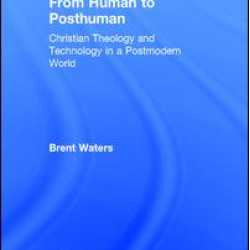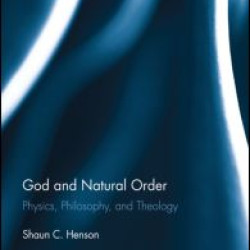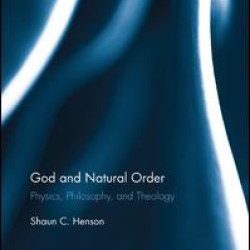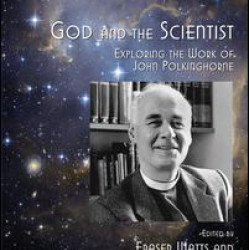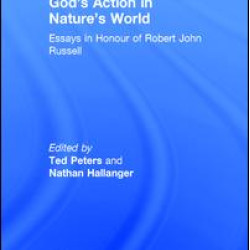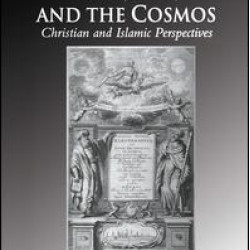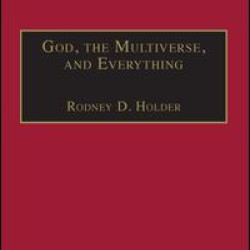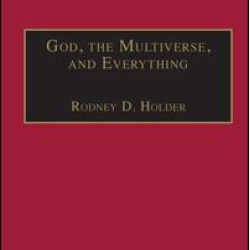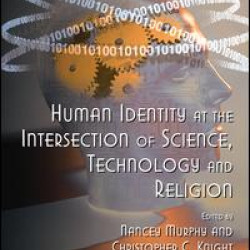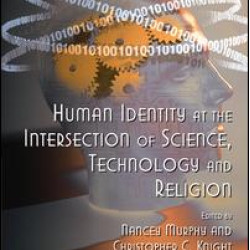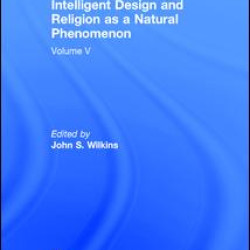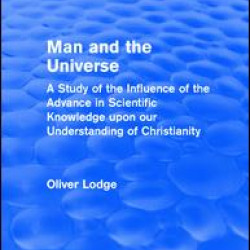Religion & Science
Brand: Taylor & Francis
Model: Stock
For many technology symbolises the faith of the postmodern world, but it is an ambivalent faith encapsulating both our hopes and fears for the future. This book examines the religious foundations underlying this troubled faith in technology, as well as critically and constructively engaging particul..
₹8,812.80 ₹11,016.00
Brand: Taylor & Francis
Model: Stock
This book brings a theological approach to bear on contemporary scientific and philosophical debates on the ordered or disordered nature of the universe. Henson engages arguments for a unified theory of the laws of nature, a concept with monotheistic metaphysical and theological leanings, alongside ..
₹8,812.80 ₹11,016.00
Brand: Taylor & Francis
Model: Stock
This book brings a theological approach to bear on contemporary scientific and philosophical debates on the ordered or disordered nature of the universe. Henson engages arguments for a unified theory of the laws of nature, a concept with monotheistic metaphysical and theological leanings, alongside ..
₹2,789.98 ₹3,487.48
Brand: Taylor & Francis
Model: Stock
This book presents a celebration, survey and critique of the theological work of arguably the most important and most widely-read contributor to the modern dialogue between science and theology: John Polkinghorne. Including a major survey by Polkinghorne himself of his life's work in theology, this..
₹2,716.54 ₹3,395.68
Brand: Taylor & Francis
Model: Stock
In 1981 Robert John Russell founded what would become the leading center of research at the interface of science and religion, the Center for Theology and the Natural Sciences. Focusing on three areas of Russell's work - methodology, cosmology, and divine action in quantum physics - God's Action in..
₹8,812.80 ₹11,016.00
Brand: Taylor & Francis
Model: Stock
God, Life, and the Cosmos: Christian and Islamic Perspectives is the first book in which Christian and Muslim scholars explore the frontiers of science-religion discourse. Leading international scholars present new work on key issues in science and religion from Christian and Islamic perspectives. ..
₹7,711.20 ₹9,639.00
Brand: Taylor & Francis
Model: Stock
Modern cosmology tells us that the universe is remarkably 'fine-tuned' for life. If the constants of physics or the initial conditions at the Big Bang were different by the smallest of margins then the universe would have been dull and lifeless. Why should the universe be so accommodating to life? ..
₹3,083.74 ₹3,854.68
Brand: Taylor & Francis
Model: Stock
Modern cosmology tells us that the universe is remarkably 'fine-tuned' for life. If the constants of physics or the initial conditions at the Big Bang were different by the smallest of margins then the universe would have been dull and lifeless. Why should the universe be so accommodating to life? ..
₹7,711.20 ₹9,639.00
Brand: Taylor & Francis
Model: Stock
Ideas of human nature in the West have always been shaped by the interplay of philosophy, theology, science, and technology. The fast pace of developments in the latter two spheres (neuroscience, genetics, artificial intelligence, biomedical engineering) call for fresh reflections on what it means, ..
₹8,812.80 ₹11,016.00
Brand: Taylor & Francis
Model: Stock
Ideas of human nature in the West have always been shaped by the interplay of philosophy, theology, science, and technology. The fast pace of developments in the latter two spheres (neuroscience, genetics, artificial intelligence, biomedical engineering) call for fresh reflections on what it means, ..
₹3,083.74 ₹3,854.68
Brand: Taylor & Francis
Model: Stock
Over the past decade a strident public debate has arisen about the nature and origin of religion. This volume focuses on the issue of naturalizing religion: on the ways in which cognitive science and social sciences have treated religion as a natural phenomenon. The essays selected for this volume b..
₹16,891.19 ₹21,113.99
Brand: Taylor & Francis
Model: Stock
Originally published in 1908, Lodge applies his background in physics to the study of Christian Theology. This title will be of interest to students of Religious Studies as well as to general readers interested in problems of existence...
₹8,812.80 ₹11,016.00


